‘Need a hug’: Anthony Albanese meets Solomon Islands PM for first time
Anthony Albanese and his Solomon Islands counterpart appear to have embraced the idea of closer diplomatic ties.
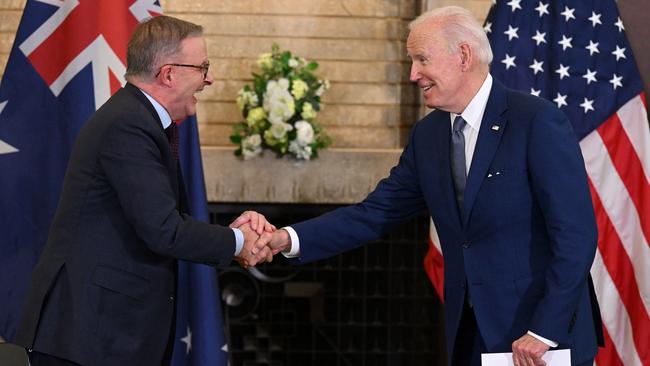
Anthony Albanese and his Solomon Islands counterpart have hugged as they met for the first time.
The Australian Prime Minister greeted Manasseh Sogavare with open arms in the Fijian capital of Suva on Wednesday.
“I need a hug,” Mr Sogavare said, as the two leaders embraced and then laughed.
Mr Albanese and Mr Sogavare are in Suva to take part in the Pacific Islands Forum of political leaders from across the region.
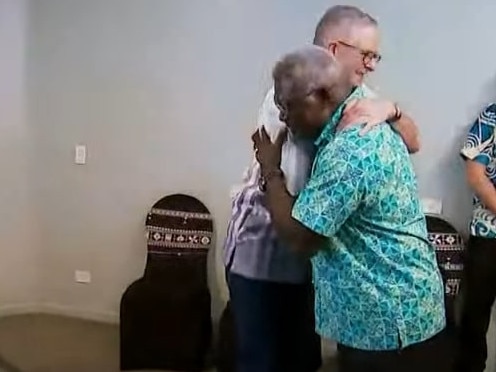
Their warm greeting, which was filmed by travelling media, comes in the wake of Solomon Islands’ controversial security pact with China.
Part of their meeting was captured on camera, with Mr Albanese saying: “The relationship between us is very important”.
“I think that there is much more we can do to co-operate and to develop those relationships of trust and mutual understanding for our joint benefit,” he told Mr Sogavare.
In response, Mr Sogavare said the relationship between Australia and Solomon Islands was “a friendship that can grow and get stronger and stronger”.
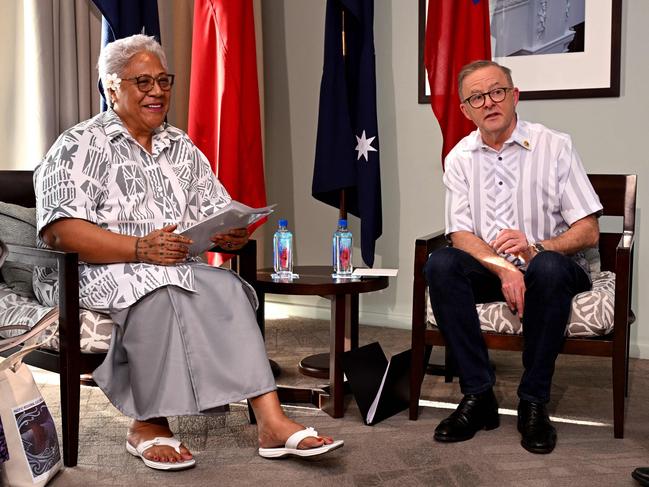
It was their first in-person meeting after an introductory phone call late last month following the Australian federal election and resulting change of government.
Mr Albanese has been critical of the way his predecessor Scott Morrison handled Australia’s relationship with its Pacific island neighbours, particularly given Beijing’s attempts to encroach further into the region.
The controversial security deal between Solomon Islands and China was signed in the final weeks of the Morrison government’s tenure and sparked alarm among Western allies.
Officials in Australia, New Zealand and the US were concerned the agreement could provide a pathway to a permanent Chinese military presence in the Pacific.
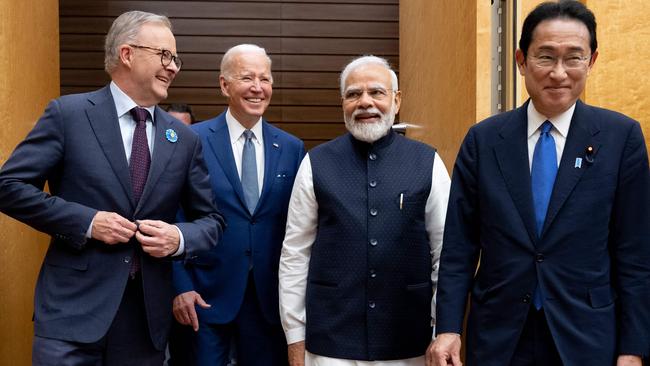
Mr Albanese earlier on Wednesday reiterated comments he had made during the election campaign about the Morrison government’s response to the agreement.
“I was quite frankly stunned that, in spite of the briefings and the foreshadowing of events in the region, all we saw was (junior minister) Zed Seselja make a visit far too late,” he told reporters in Suva.
“We didn’t have that presence at prime ministerial or ministerial level. And I think that was an error of judgment on Australia’s behalf at the time,” he said.
Mr Albanese said his government was focused on the future and developing positive relationships with its Pacific neighbours.
He has been eager to differentiate his commitment to reducing emissions and tackling climate change from the less ambitious approach taken by Mr Morrison
“I’ve had a number of discussions with Pacific leaders; I look forward to developing those relationships on a personal basis going forward,” he said.
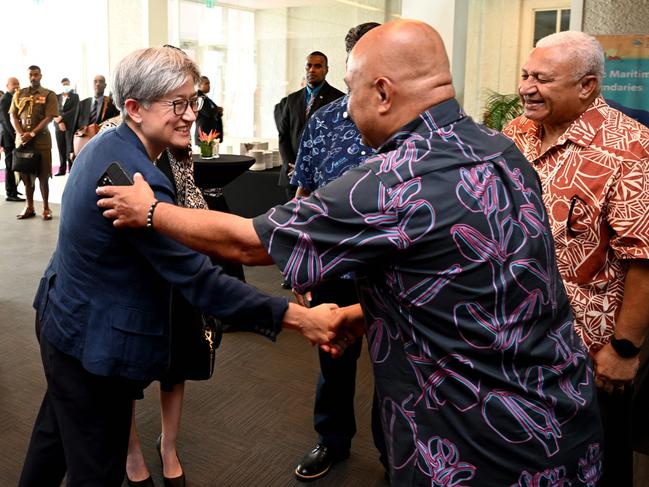
While he didn’t name China directly, Mr Albanese said Australia’s support for the Pacific region did not come with “strings attached”.
Mr Albanese said the United States had sent a “clear message” to China by announcing it would ramp up its diplomatic presence in the Pacific following the Honiara-Beijing security deal.
US Vice President Kamala Harris announced at the PIF earlier on Wednesday that the Biden administration would triple its spending in the region to $88.5m AUD a year over the next decade.
Mr Albanese said he had spoken to US President Joe Biden about the plans when they met in May.
“The message is clear that the United States has a presence in the Pacific and has for a long period of time. The presence of the US in the region is important.”
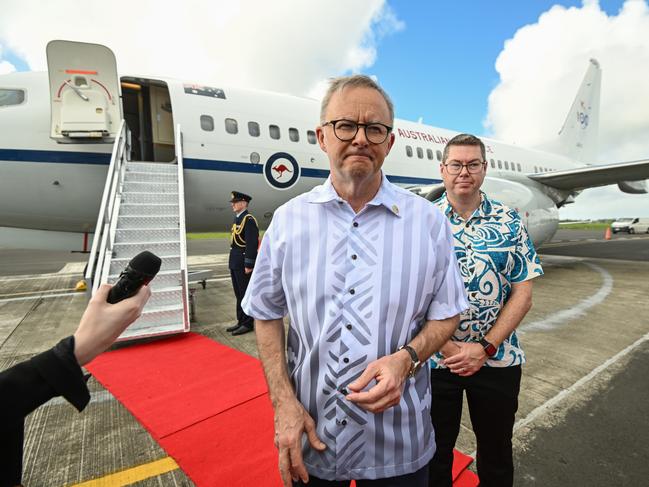
Mr Albanese wouldn’t be drawn on whether he thought China would make any counter announcements.
“I’m responsible for Australia’s foreign policy; I’ll leave other countries to run theirs,” he said.
The US also intends to open two new embassies in the region – one in Tonga and another in Kiribati, which pulled out from the PIF this week.
Among the US’ other commitments is the re-establishment of an International Development regional mission in Fiji and the reintroduction of Peace Corps volunteers to the region.
Foreign Minister Penny Wong earlier on Wednesday said China’s presence in the region was a “fact of life”.
“We want a region that is peaceful and prosperous and stable, where sovereignty is respected,” Senator Wong told the Nine Network.
“What that does require is engagement from a number of powers and a number of countries. We welcome the US’ engagement.”


